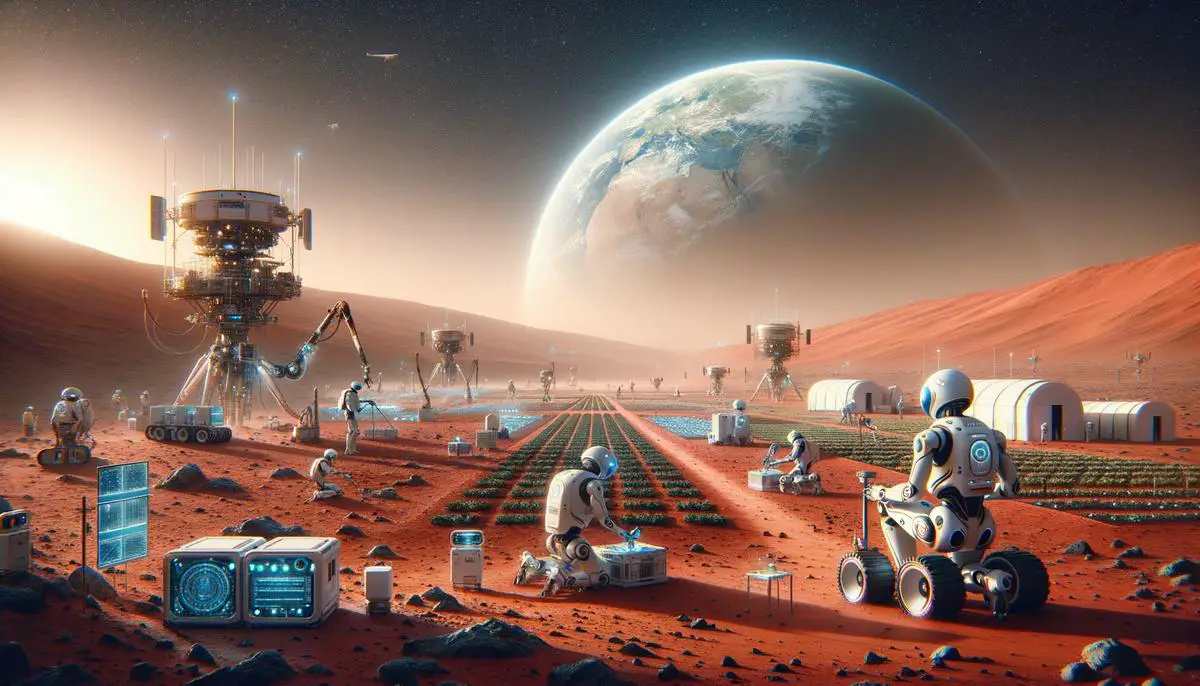Role of Robotics in Terraforming
Robots play a crucial role in terraforming efforts, performing tasks too dangerous or complex for humans. They scout unknown terrains, gather geological and atmospheric data, construct habitats, move soil, build power stations, and maintain infrastructure. Robots mine minerals, extract gases, and harvest resources while keeping humans safe. Their sensors track environmental changes and uncover secrets of alien landscapes, aiding in planning future missions.
These automated agents:
- Plant seeds and fertilize soils
- Regulate climatic factors
- Create habitable conditions
- Manage water resources
They operate in confined spaces and perform tasks requiring high precision. AI enhances their capabilities, allowing them to respond swiftly to changes and anomalies, analyze data patterns, and optimize resource usage.
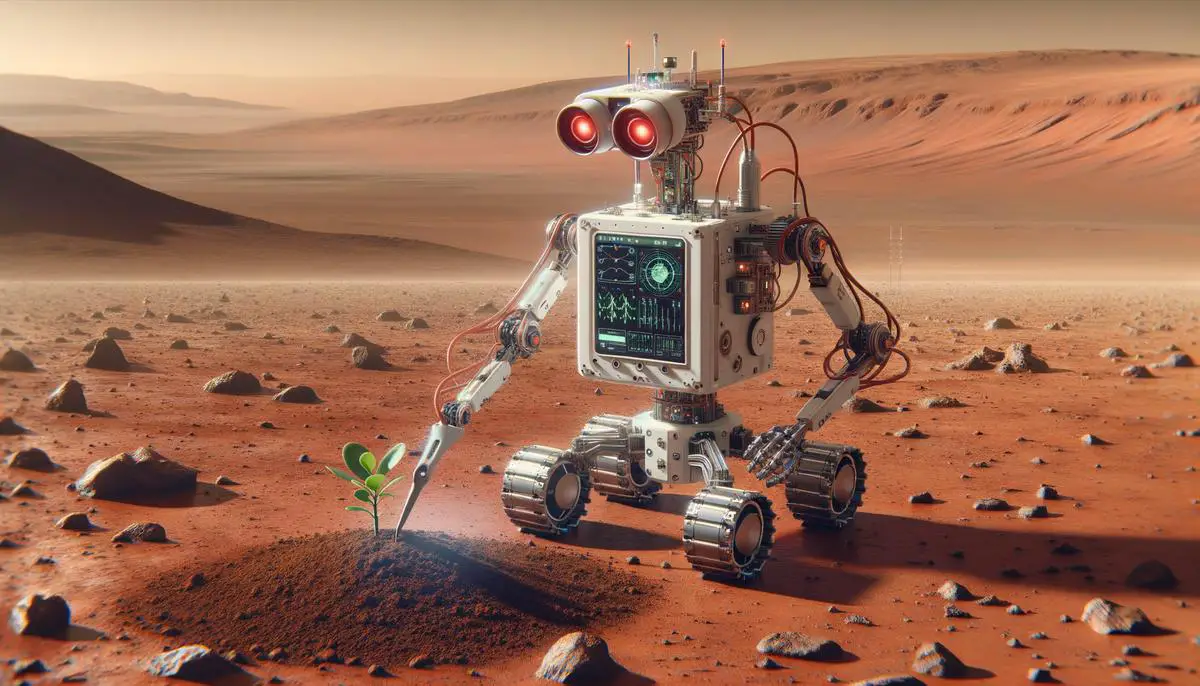
AI in Space Exploration
AI is an essential component in space exploration, enhancing the autonomy and sophistication of spacecraft and rovers. It enables real-time decision-making, allowing machines to adapt to unanticipated circumstances without immediate human guidance. AI algorithms continuously learn and improve, analyzing data from onboard sensors and instruments to identify patterns and potential issues.
In mission planning, AI systems:
- Chart optimal courses
- Conserve resources
- Evaluate variables to maximize efficiency and reduce risks
AI also elevates robotics control, allowing mechanical components to maneuver with increased precision and independence. This synergy between AI and robotics ensures smooth execution of tasks in the challenging environment of space.
As space exploration continues to expand, the collaboration between human ingenuity and artificial intelligence paves the way for new discoveries and innovations in our understanding of the cosmos.
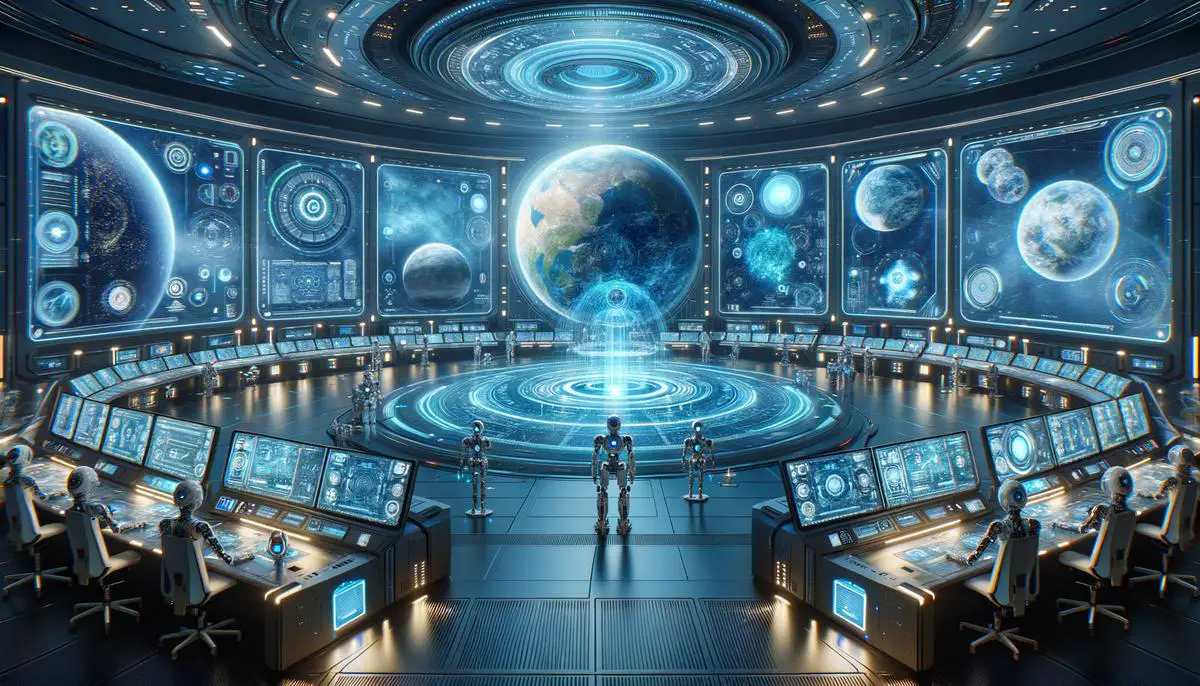
Self-Replicating Robots and Von Neumann Probes
Self-replicating robots, or von Neumann probes, represent an advanced concept in space exploration. These theoretical machines can construct replicas of themselves using raw materials found in their surroundings, enabling exponential exploration and resource utilization. Their potential applications include:
- Mining celestial bodies
- Terraforming planets
- Initiating atmospheric changes
In terraforming, von Neumann probes could reshape planetary environments, alter climates, construct infrastructure, and create biospheres, laying the groundwork for future human settlements on distant worlds. However, the deployment of such self-replicating machines raises significant ethical considerations, including the potential for unintended consequences and the responsibility of fundamentally altering other worlds.
As this technology develops, it is crucial to balance ambition with prudence, ensuring sustainable and ethical practices in our interstellar endeavors. The concept of von Neumann probes challenges us to reflect on the technological possibilities and moral imperatives of space exploration.
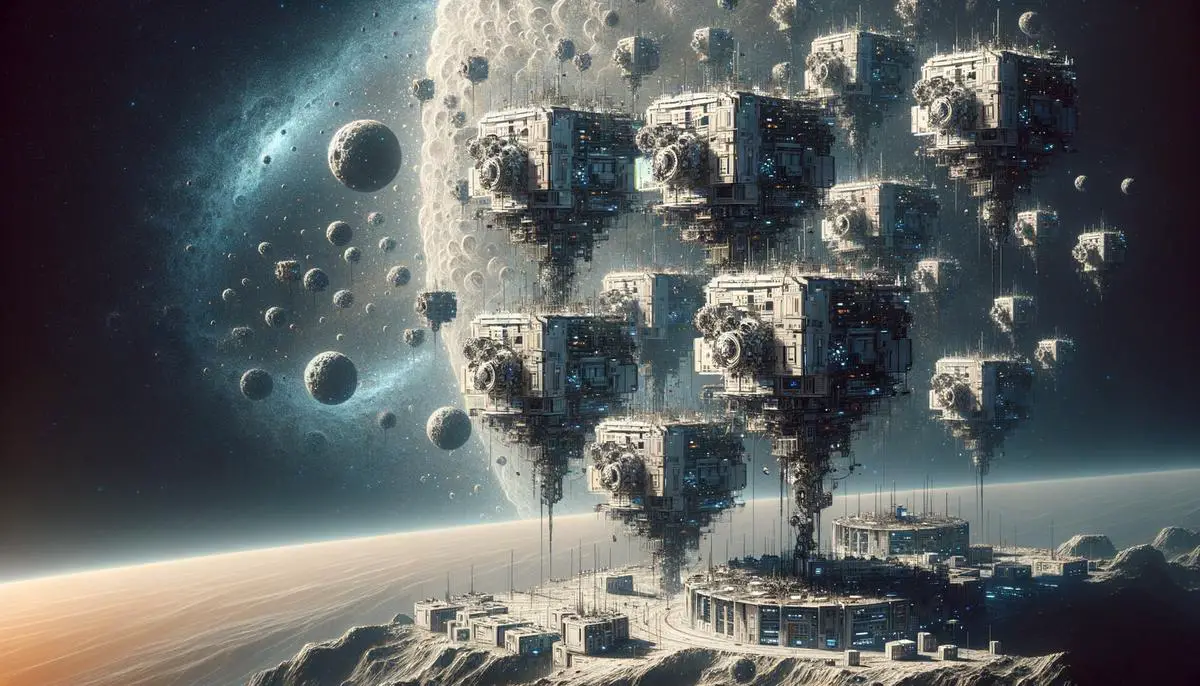
Ethical and Social Implications of Terraforming
Terraforming and space colonization raise profound ethical and social questions. The alteration of entire ecosystems demands a rigorous ethical framework, considering the intrinsic value of other planetary bodies and the balance between development and preservation.
The interplay between humans and AI in space colonization necessitates careful examination of roles and responsibilities. As machines become more autonomous, ensuring they work in harmony with human values and objectives is crucial.
Establishing human settlements beyond Earth requires new social systems and educational paradigms. Economic structures may need revision to account for resource scarcity and interdependence. The potential for new social hierarchies in these nascent communities must be addressed to ensure fairness and justice.
Space colonization may redefine human identity and belonging, requiring significant cultural and psychological adjustments. Preparing resilient communities that value diversity, innovation, and cooperation is essential for successful extraterrestrial habitation.
Ultimately, terraforming and space colonization present both an opportunity to showcase human ingenuity and a test of our ethical maturity. Striking a balance between extending our reach into the stars and upholding our ideals of stewardship and responsibility is paramount.
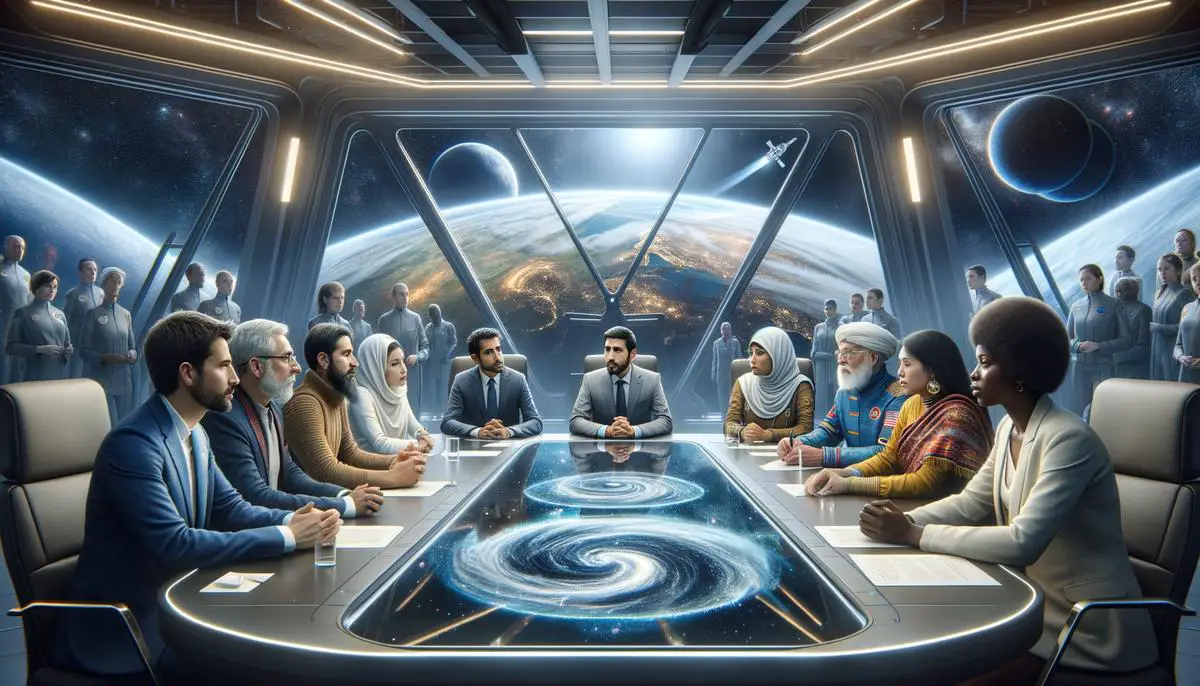
Challenges and Limitations of Terraforming Mars
Terraforming Mars presents significant scientific and technological challenges. Key obstacles include:
- Transforming the thin, CO2-rich atmosphere into one suitable for human life
- Increasing atmospheric pressure to support liquid water on the surface
- Compensating for Mars's lack of a strong magnetic field to protect against solar wind
- Utilizing indigenous Martian resources effectively
- Meeting enormous energy requirements for planetary-scale operations
- Adapting plant life to survive in Martian conditions
- Developing infrastructure and resource management systems for a sustainable environment
Potential solutions involve advanced robotics and AI to automate processes, in-situ resource utilization, and the development of habitation modules mimicking Earth-like conditions. Ethical considerations regarding planetary alteration must also be addressed.
The magnitude of these challenges necessitates a concerted global effort, significant technological advances, and a long-term commitment. While the path to a terraformed Mars is uncertain, the pursuit continues to drive innovation and expand the boundaries of human capability in space exploration.
As humanity explores the potential of reshaping distant worlds, we face both unprecedented challenges and opportunities. This pursuit requires a careful balance of technological innovation and ethical consideration, reflecting our values and aspirations as we extend our presence in the cosmos.
- Hart E. Autonomous Robot Evolution: Potential and Challenges. Nature Synthesis. 2023;2(1):12-18.
- Jiang J, et al. AI-powered robot chemist synthesizes oxygen-producing catalysts from Martian meteorites. Nature Synthesis. 2023;2(11):1032-1040.
- Dyson G. Project Orion: The True Story of the Atomic Spaceship. Henry Holt and Co.; 2002.
- Saberhagen F. Berserker. Ballantine Books; 1967.
![]()
